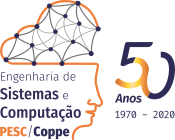Um Sistema de Recomendação Inteligente Baseado em Video Aulas para Educação a Distância
Autores
|
5926 |
2731,754,768
|
|
|
5927 |
2731,754,768
|
|
|
5928 |
2731,754,768
|
Informações:
Publicações do PESC
Título
Um Sistema de Recomendação Inteligente Baseado em Video Aulas para Educação a Distância
Linha de pesquisa
Redes de Computadores
Tipo de publicação
Tese de Doutorado
Número de registro
Data da defesa
21/1/2016
Resumo
O aprendizado utilizando vídeo aulas vem se tornando o método de ensino a distância mais utilizado nos últimos anos. No entanto, diferentemente dos sistemas de tutoria inteligente, as vídeo aulas não têm a capacidade de adaptar seu conteúdo de acordo com as dificuldades de cada aluno, principalmente porque os alunos são passivos em relação à vídeo aula. Nesta tese é apresentado um sistema de recomendação inteligente baseado em vídeo aulas para o uso em ensino a distância. Tal sistema é baseado em modelos computacionais para detecção do engajamento do aluno enquanto assiste uma vídeo aula. Para tratar o problema da falta de interatividade do aluno, tais modelos utilizam sensores que monitoram o comportamento do aluno durante o aprendizado. Nós desenvolvemos um sensor baseado em uma câmera com infra-vermelho que captura características dos olhos como o diâmetro da pupila e a taxa de piscada dos olhos. Os modelos desenvolvidos atingem até 80% de precisão quando comparado a informação semelhante provida por professores. Também é apresentado um modelo para medir o engajamento do aluno baseado no tempo que o aluno assiste cada vídeo aula.
Abstract
Video lectures have become the most used method of distance learning. But, differently from modern Intelligent Tutoring Systems, video lectures lack the capability to adapt its contents to the student needs. Basically because video lectures are passive to the student. In this thesis, we present an intelligent recommendation system based on video lectures for distance learning. We address the problem of lack of interactivity between the student and the video lecture by passively monitoring the student with sensors. We developed a novel student model that can output theengagement of the student towards the system using the information provided by these sensors. Our system is capable of adapting the flow of the video lecture based on the reported output of our student model. To be able to monitor the engagement of a student, we developed a sensor based on a infrared webcam that can captureeye features, like pupil diameter and blink rate. Using this sensor and our model, we can achieve an accuracy higher than 80% for the engagement of students, compared to the feedback provided by teachers. We also present a model to measure the engagement of students in a video lecture based on how much time the student spent in the lecture.
Arquivo




